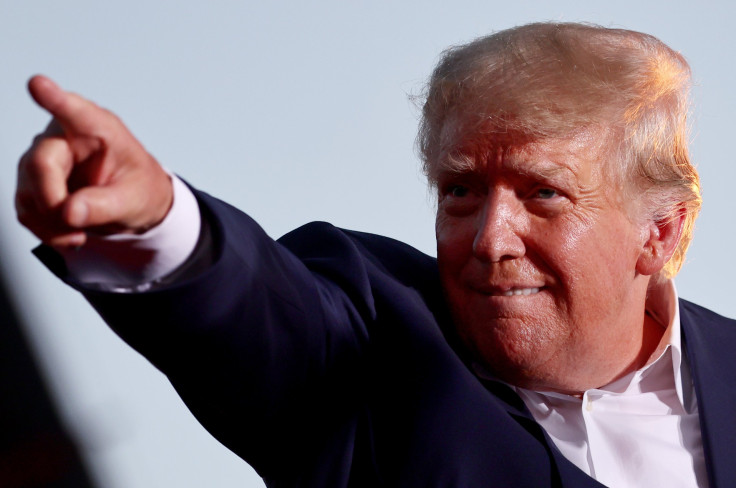
Most members of religious groups in the U.S. view former President and presumptive Republican nominee Donald Trump unfavorably, according to a new survey by the Pew Research Center.
The only ones who have net favorable figures are White evangelical protestants and White Catholics. Regarding the former, 30% hold a very favorable view of Trump and 36% a mostly favorable one, compared to 33% with an unfavorable view.
As for the latter, the view is favorable by the narrowest of margins, as 51% hold a mostly or very favorable view compared to 49% unfavorable assessment. All other religious groups have a net unfavorable view of the former president.
Latinos are somewhat in the middle of the table, with Protestants disliking Trump less than Catholics. Concretely, 54% of Latino Protestants surveyed held a net unfavorable view of Trump, compared to 45% who answered positively (27% holding a mostly favorable view and 18% a very favorable one). Moreover, two thirds of Catholics (66%) held an unfavorable view, with 32% giving a positive answer (19% and 13%, respectively).

The groups were far from being the ones who dislike Trump the most, as 88% of Atheists surveyed gave a negative answer, the figure being 82% for agnostics, 80% for Black Protestants and 79% of Jewish Americans.
"These religious patterns largely reflect partisan differences. Most White evangelicals tend to vote for Republicans, as do smaller majorities of White Catholics and White nonevangelical Protestants. By contrast, most atheists, agnostics, Black Protestants and Jews tend to vote for Democrats," reads a passage of Pew's analysis of survey results.
The study also described other respondents' views of Trump at a general level, without dividing answers in ethnic segments. It showed that "Trump's favorability rating is similar among Christians who attend church regularly and those who don't" and that "many of the people who view Trump favorably don't go to religious services regularly – but very few are nonreligious."
Overall, almost two thirds of respondents (64%) who have a favorable view of Trump said they "attend religious services a few times a year or less often, while 35% say they go to services at least once or twice a month."
Analyzed with a more precise lens, defining levels of commitment to religion based on whether they pray daily, go to services and say religion is very important in their lives, "23% of U.S. adults with a favorable view of Trump are highly religious, including 11% who are highly religious White evangelical Protestants. Another 62% of Americans with a favorable view of Trump have medium levels of religious commitment, including 13% who are White evangelicals."
Moreover, most of those who have a favorable view of Trump don't think he's very religious himself, but many think he "stands up for people with religious beliefs like theirs." "Just 8% of people who have a positive view of Trump think he is very religious, while 51% think he is somewhat religious and 38% say he is not too or not at all religious," the study showed.
However, it added, "51% of those with a favorable view of Trump think he stands up for people with religious beliefs like their own, including 24% who think he does this a great deal and 27% who say he does this quite a bit."
A different survey by PRRI showed that, within religious groups, Christian nationalism is emerging as a demographic profile on itself, a significant amount of Latinos among them.
The group is comprised by people from all ethnicities and has been described by PRRI's president and founder, Robert P. Jones, as one that holds an "anti-democratic worldview that has been with us since the founding of our country — the idea that America was designated by God to be a Christian country where white Christians occupy the highest positions of power and laws are judged to be valid based on their particular interpretation of the Bible."
The study examined how religion, party, education, race, and other factors intersect with Christian nationalist views, showing a propension to support the Republican Party, Donald Trump and political violence.

In terms of geographical location, the study showed that "states with the highest levels of support for Christian nationalism form a horseshoe shape, starting in the upper Midwest, dipping down into the deep South, and then moving up again through the Appalachian Mountains."
The way states voted recently is also an indicator. "Nearly four in ten residents of red states are Christian nationalists (14% Adherents and 24% Sympathizers)," the survey shows. This compares to 22% in Blue states. The picture in seven battleground states resembles the national average: 10% of adherents and 19% of sympathizers.
Support for the Republican party is also a powerful hint, as 55% of them hold Christian nationalist views, compared to 16% of Democrats and 25% of independents.And, within the Republican Party, having voted for Donald Trump in the 2020 elections is another factor.
Finally, the report delved into whether respondents believed that political violence may be justified. Results showed that Christian nationalists are about twice as likely as others to agree with that premise.
© 2025 Latin Times. All rights reserved. Do not reproduce without permission.





